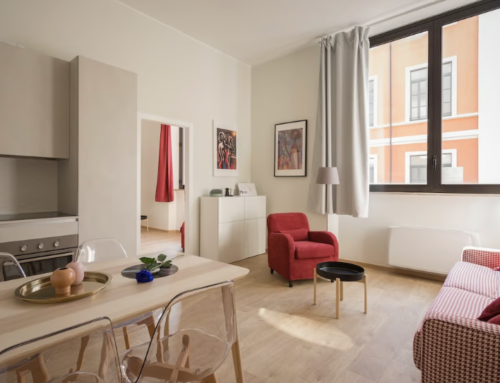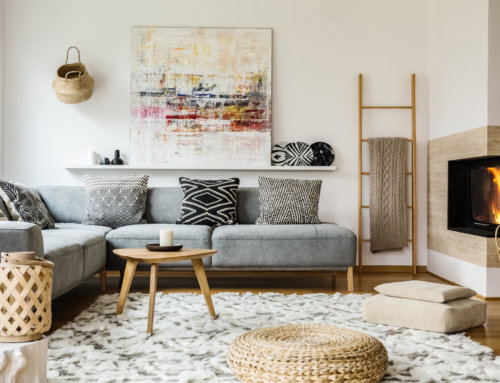
According to this study, staying in a sober living home is an effective way to maintain long-term sobriety. Still, there are many myths surrounding sober house living. As a result, many people neglect to consider sober living as an option.
Don’t let these sober living myths stop you from starting your own sober living home! Instead, read on to learn more about these common myths.
Debunking these myths can help you make more informed decisions before opening your own home.
Then, you can start helping others maintain their sobriety after rehab. Read on to learn more about the most common sober living myths today.
1. No Regulations
Sober living homes aren’t under the same scrutiny as medically-related residences (like nursing homes and assisted living facilities). However, sober living homes are regulated. People shouldn’t let these sober living myths stop them from receiving care.
If any medical services are provided on the premises, additional regulations can apply.
Encourage people to take the time to tour a facility to determine if it’s the right fit for them. They’ll likely ask about the regulations and local ordinances you follow. They can find peace of mind knowing the home follows local laws and regulations.
Here are a few quality standards for sober living homes to consider, too.
2. Unsafe
Some residents question if they’ll remain safe while living in a sober living home.
Sober living homes are designed to help addicts after they complete their rehabilitation. Residents are from all walks of life. However, some sober homes are more restrictive about who they accept than others.
Determine how you’ll ensure residents will remain safe before opening your own sober house.
3. Drug Use is Common
One of the biggest sober living myths that can impact someone’s decision is believing drug use is common in a sober living home. The purpose of moving into a sober living home is to maintain sobriety after rehab. As a result, alcohol and drug use aren’t allowed.
In fact, many sober living homes will require residents to complete random drug and alcohol testing while they’re a resident. In some cases, they could get kicked out of sober house living if they break this rule.
In other cases, residents need to seek counseling if they’re caught using a banned substance.
Following this rule can help them remain accountable for their sobriety.
4. Poor Maintenance
One of the biggest sober house living myths that exist today is that the homes are poorly maintained. Many people imagine dilapidated houses in need of repair.
Before moving into a sober living home, residents need to agree to a set of rules. One of the rules might involve completing weekly chores. Residents are responsible for maintaining the sober living home they remain in.
As a result, sober living homes are better maintained than most people think.
In order to attract new residents and funding, most sober living homes focus on creating an inviting environment. It’s also important to make sure a sober living home is safe and clean. Finding the right environment can help support their sobriety.
Make sure residents can find a home they feel comfortable living in. They’ll have an easier time focusing on their sobriety if they’re comfortable.
5. Bad Neighborhoods
Previously, government programs and local, non-profit organizations supported the first few sober living facilities. These homes received limited funding, though. As a result, they were established where it was considered cost-effective at the time.
Too often, these homes were placed in less desirable neighborhoods.
The stigma has since shifted, though, and overall funding has increased. In recent years, new, private treatment facilities were built. Today, sober living homes are now located in more comfortable areas.
You can find sober living homes in almost any type of neighborhood across the country. With that in mind, residents can find locations based on their preference or comfort zone.
6. Pets Aren’t Allowed
Some sober living homes don’t allow pets. However, that’s not the case for every home.
Before choosing a sober house, residents might ask if pets are allowed. Don’t forget to mention pets in your home’s rules.
Caring for a pet requires residents to remain responsible and accountable. Having a pet also provides them with a loving companion while they’re in recovery. Caring for a pet could help them as a recovering addict.
7. No Vacancy
Many people believe that most sober living homes are already full. However, new sober living homes open up all the time. Most facilities are able to accept residents almost immediately, too.
If your sober house suddenly fills up, have a potential resident talk to someone on staff. Try to help the resident find another sober living home nearby. After all, most homes are part of a larger network.
Treatment professionals understand how important it is to find a sober living home as part of the recovery process. Help potential residents find a nearby sober house so they can begin treatment right away.
8. Residency is Free
Some people also believe that staying in sober house living is free. However, most homes require residents to pay rent and other fees.
Make sure you outline the fees your residents will need to pay before you start accepting guests.
9. No Friends or Family
Nearly 50% of people have a friend or family member who’s been addicted to drugs. Having support from a loved one can help residents maintain their sobriety. However, you can set some restrictions about when they can receive visitors.
Don’t forget to mention these restrictions in the sober home’s rules regarding guests.
10. They’re All the Same
Not all sober living homes are the same. For example, some are located in basic living facilities, while others are in luxury apartments.
As a result, residents can find a program that suits their needs.
Stay Sober: 10 Myths About Sober House Living to Ignore
Don’t let these sober house living myths stop you from opening up your own sober living home. Instead, take the time to establish a home that offers residents the care they need. You can help them maintain their sobriety.
You can also help potential residents debunk these sober living myths. Then, they can find a home that suits their needs.
Eager to open your own sober living home? We can help.
Explore this guide today to get started.









